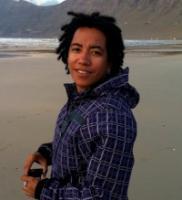Ortega, Esther | Spain

Esther Ortega is a doctoral candidate at the University of Santiago de Compostela, Spain. She did her degree (licenciature studies, 5 years) at the Complutense University of Madrid, where she graduated in History / American Anthropology. Subsequently, she received a Diploma of Advanced Studies in Feminist Perspective as Critical Theory at the Complutense University of Madrid. However her main interest are in Science and Technology Studies, she has been working during the last four years as Project Officer in the Spanish Foundation for Science and Technology developing projects related to scientific culture and social understanding of science as well as Assistant Researcher in Ideas Foundation researching about national and regional innovation systems in Spain. At present, she is finishing her Ph.D. dissertation entitled: “The sex/gender question in medicine: Trans-technologies and gender values in Spain”. Her research focuses on science and technology studies, and the relationship between science, technology, medicine and gender.
Project at IAS-STS: The sex/gender question in medicine: Trans-technologies and gender values in Spain
The aim of this project is to analyse the discourses and socio-medical practices about the bodies of transgender/transsexual people from a situated and partial perspective. I am inquiring on the status bodies occupy and display in scientific practices. Through the study of concrete “passing” technologies I seek to draw how sexed bodies are represented in scientific knowledge, what is the role of such bodies play within the development of those technologies, and how are the gender values playing a main role in the configuration and re-configuration of socio-medical ideas about sexualised and gendered bodies.
Medical and technological processes are re-constituted and re-built through concrete social practices and at the same time, they affect those practices in a co-production process.
The sex reassignment technologies are generating new socio-cultural realities that are changing the legal, cultural and health concepts (Garcia Dauder, Romero Bachiller and Ortega, 2007, Mol, 2008; Missé & Coll-Planas, 2010). These technologies introduce some factors of social change and are immersed in a process that makes them possible and through which they are fed (Hausman, 1995; Balsamo, 1996). Somehow, we could argue that the practices produce multiple networks of meanings and, therefore, multiple realities and bodies (Mol, 2002).
Selected Publications
“Medical practices of sexual difference: Regulating transits in trans bodies”, Actas del VII Congreso de la Sociedad de Lógica, Metodología y Filosofía de la Ciencia en España, 2012
“Transformaciones tecno-científicas de cuerpos, sexos y géneros”, in Consuelo Miqueo, María José Barral, Carmen Magallón (coords.), Estudios iberoamericanos de género en ciencia, tecnología y salud: GENCIBER. Universidad de Zaragoza, Prensas Universitarias de Zaragoza, 2008. (717- 722)
“Sex and gender body policies” in Isegoría, 38, 2008. (222-225)
“Disobedient bodies and genital mutilation: The Techno-medical regulation of sexed bodies”, in Joseph María Armengol i Carrera (Coord.). Masculinitats per al segle XXI, CEDIC, Barcelona, 2007. (37-47)
